|
Olivia Colman and Dakota Johnson in The Lost Daughter (2021) It’s rare to see portrayals of women onscreen that are not glossed cookie-cutter versions of themselves. In Maggie Gyllenhaal’s directorial debut feature, The Lost Daughter, there is no one way to be. There are no shallow aesthetics or inhibitions in that regard. Her film lives inside the mess of conflicting human emotions. Based on Elena Ferrante’s novel of the same name, The Lost Daughter challenges what a woman should look like, how a woman should behave, and the feelings that are eternally tied between mothers and their children. It’s one hell of a story, a deeply sensual and perceptive exploration of motherhood from the unconventional lens of a meditative filmmaker. Deliberately straying from the many glowing depictions of motherhood often painted onscreen, The Lost Daughter voices the messiness; the ugliness, the crushing responsibilities, the flirtation with personal gratification. Characters have the urge to let themselves be swept far away into the sensation of solitary liberty. Gyllenhaal has such rich material to work with and is completely unafraid to play in the realm of uncomfortableness. The Lost Daughter is truly haunting, every bit nightmarish as it is dreamy.
With a cast that includes such talent as Olivia Colman, Jessie Buckley, and Dakota Johnson, not a moment on screen is deprived of compelling action. Colman delivers her most fascinating performance to date, saying a lot considering the impressive work she’s amassed for years. Colman plays the protagonist Leda, a revered English professor and mother to two children. Whilst on a beach holiday in Greece, she anticipates peace and quiet. Soon enough, Leda’s seaside paradise takes a dark turn after encountering a large brazen family, whose presence provoke secrets from her complicated past to wash ashore. Gyllenhaal’s exploratory direction captures the weight of feelings left unspoken for so long, that one seemingly inconsequential event can unravel threads in the protagonist’s mind. The family caught in the troubles of Leda’s memories include young mother Nina (Dakota Johnson), trying to relax while caring for her daughter Elena (Athena Martin Anderson). After Elena gets lost temporarily, the experience of finding her becomes a tipping point for Leda. Her early years as a mother unravel through flashbacks, starring a brilliant Jessie Buckley as the younger version of the character. The Lost Daughter transitions often from past to present, shedding light on the psychological journey the film goes on from Leda’s perspective. The flashbacks focus on a harried Leda, overwhelmed with motherhood and on the verge of a breaking point. Buckley’s remarkable performance as young Leda makes connecting the dots to present-day Leda all the more commanding. Combined with Colman’s performance, it makes for an intriguing character study with two actors at the top of their game exploring an unsettled psychological confrontation. With both time periods telling an equally interesting story of repressive imperfect emotion, the film is a triumph from start to finish. Besides Leda’s inner voice, there’s also her present-day interactions with Nina that further lift the story to a compelling meditation. Johnson has a strong screen presence, and her playing Nina is a fantastic example of casting done well. Nina’s presence in the film takes ahold of Leda so unexpectedly, and Johnson’s mystique as an actor spills into their exchanges making them all the more thought-provoking. You never really know where their interactions will go next, and by the end, there’s plenty of pondering where the characters will go from there. There's a recurring image in the film of peeling fruit like a snake. It's a source of nostalgia for Leda, and her daughters as shown in flashbacks, to peel fruit in its entirety without ever breaking into pieces. Gyllenhaal makes use of this imagery just enough without it ever feeling like a forced kind of symbol. It's a great little detail that adds more to ponder on. Gyllenhaal’s direction has such a dreamy rhythm, with lingering closeups and windswept trailing of characters from one moment to the next. She brings an unflinching approach to ambiguousness and unpleasantness. There’s a strong sense that, at any given moment in this ode to motherhood and womanhood, it could all be a terrible nightmare the protagonist will one day wake up from. That one day, the peel will break into pieces, the continuity will end. So much is at stake through the performances; Colman, Buckley, and Johnson each bringing their characters to life in such genuinely intimate ways, utilizing the strengths of acting through physicality. Colman and Buckley in particular are an interesting mirror to one another, both as well a reflection of wonderful and sensory direction. The Lost Daughter is a vulnerable, powerful debut by Maggie Gyllenhaal, whose adaptation of Ferrante’s novel is among the most thought-provoking book-to-screen ventures. The Lost Daughter arrives December 31 exclusively on Netflix.
0 Comments
Denzel Washington and Frances McDormand in The Tragedy of Macbeth (2021) Something wicked this way comes…another reimagining of a Shakespeare play, with one of the Coen brothers at the helm. Joel Coen’s first solo directorial feature swerves the footsteps of countless Scottish Play adaptations and operates in a world of its own. For Coen’s vision is a precise reimagining that embraces its source material in a satisfying marriage of stage and screen. The writer-director finds cinematic weight in the Scottish Play, using minimalist sound stages as the canvas for this wrathful tale of ambition. Emotion takes center stage through the vessels of mighty performances, from Denzel Washington’s majestic Macbeth to Kathryn Turner’s frightening Three Witches. The actors bring commanding performances to surface, ready to play when the lights come on and giving their all before darkness falls. The Tragedy of Macbeth takes a long day’s journey into night in what feels like a continuous take, the transitions between scenes so seamless. It’s a bleak and witty adaptation, that may feel out of reach with heavy dialogue, but grows into an absorbing piece of visual storytelling. The story begins with a foretelling. After receiving a prophecy from a trio of witches (Hunter), Macbeth (Washington) becomes convinced that he will soon become King of Scotland. He will make it so without a moment’s haste, as he doesn’t have much time. Consumed by ambition and encouraged by his wife Lady Macbeth (Frances McDormand), Macbeth plans precisely to take the throne for himself. The film opens to the cue of a beaming light switching on. A great sensory detail that automatically makes the viewer think of theatre. Characters are hatching plans and scurrying in what feels like a film noir rabbit hole, some otherworldly place where nothing else matters but action spurred by prophecy. Coen manages to capture the level of intimacy that can be felt watching a stage production, wherein magic comes from the performers being so present and in the moment. What he also does is capture the power of Shakespeare’s words, not by way of dramatic revision but by surrounding them with rich visual storytelling and a more-than-capable ensemble of mostly veteran actors. Denzel Washington as Macbeth is remarkable casting. His charisma and presence are instant, a most compelling lead to carry this journey of ambitious cunning. Just by watching this character, it is crystal clear he carries the witches’ prophecy in his veins. Washington brings an all-knowing quality, a sense of being consumed by the power of fate. It’s a magnificent performance, one of his very best and among one of the most personalized Shakespearian portrayals. In the role of Lady Macbeth is another vet, Frances McDormand. She brings sparkling wit and shares in Washington’s all-knowing quality, which makes for another example of fine casting. Making it look easy, she traces her character’s intentions to a place of unraveling madness. Whenever McDormand and Washington share the screen, sparks fly watching two of the greatest living actors embody rich text in a way that looks effortless. Denzel Washington in The Tragedy of Macbeth (2021) Frances McDormand in The Tragedy of Macbeth (2021) Kathryn Turner in The Tragedy of Macbeth (2021) Though it’s expected McDormand gels with the direction of her partner, and it’s not surprising that the talent in this cast shine, it’s really a treat to watch how well everyone works with Coen’s vision. The Tragedy of Macbeth has a powerful ensemble, each actor shining regardless of how big or small the role. From Corey Hawkins (Macduff) and Alex Hassell (Ross) to Moses Ingram (Lady Macduff), there’s a sparkle in all their work here, and they leave anticipation for more greatness to come. Then there’s theatre veteran Kathryn Turner playing all three witches, otherwise known as The Weird Sisters. Turner’s performance is unlike anything I have seen on screen or anywhere. It’s such an immaculate and literally shapeshifting portrayal, from the depth’s of a nightmare. Her physicality is astounding and makes every contorting movement a marvel. Turner utilizes the quality of being all-knowing to a scary extent, pulling from a world known by no other. Coen’s visual storytelling compliments the entire cast as well. It’s so easy to feel absorbed by their actions and thoughts, of course a testament to their talent but also with the added weight of striking imagery.
The influence of 1940s movies is strong in Coen’s direction, especially given the ratio and transitioning between scenes as they bleed into one another. The Tragedy of Macbeth feels like a different, more experimental effort from the dark humor often found in Coen’s works. This is not to say his latest has none. He maintains a dash of silliness, not taking the Scottish play so completely seriously in every moment. In this story is the demise of fools, running to their prophetic futures as if there is no tomorrow. There is something about the setting of Coen’s production that makes it feel like an abyss, if you were to zoom out you’d see the characters scurrying for power in a grayish maze. With the use of minimal set design and lots of silhouettes, all the shadowing is gorgeous. Bruno Delbonnel’s cinematography gives a visual to night and morning being at odds. The score by Carter Burwell is brilliant; meshing with the sounds of footsteps, drops of water and blood, mirroring actions so well. The Tragedy of Macbeth is told with such persuasion it’s easy to be swept away by Coen’s reimagining of the text. It’s a compelling adaptation with majestic performances, and remarkably minimal set design contrasting the weight piled onto characters’ shoulders. There’s enough material to feel totally consumed by their actions and thoughts as they scheme for political gain. It’s a stunning achievement that manages to tread a fine line between a stage production and screen adaptation, finding its own space for the performers to play. And play they do. When the light switches off and a flock of ominous crows take flight, comes the sudden realization that The Tragedy of Macbeth pulls off an impressive feat. The Tragedy of Macbeth arrives in theaters December 25 and on Apple TV January 14. Isabelle Fuhrman in The Novice (2021) Writer/director Lauren Hadaway’s feature debut The Novice builds stamina from a powerhouse performance at the center. Isabelle Fuhrman plays Alex Dall, a college freshman who joins her university’s rowing team with the goal to make varsity in her first year. Alex will do whatever it takes to rise. Her determination reaches obsessive degrees as she pours her body and mind into competitive rowing. Her surroundings blur out of focus to make the sport center stage, and Hadaway wastes no time immersing into action as the camera chases Alex down a darkened hallway to an already-started rowing class. The words of Coach Pete (Jonathan Cherry) echo in her mind like study notes before a test: “legs, bodies, arms, arms, bodies, legs.” It’s clear from the start that Alex is ready to jump into the deep end, and that Lauren Hadaway has arrived as a filmmaker to watch. The Novice takes a remarkable ride on an obsessive psychological journey.
Hadaway crafts an intense character study and takes the plunge into experimental filmmaking to tell it. To feel Alex’s heart race, and to go on the journey with her like a fly on the wall, The Novice lets her emotions take control of the camera. From frantic classroom note-taking to early bird practices, the film moves to the rhythm of her drive. The imagery borrows from the characters’ lines to make words pop. The tense score boosts every heart-racing moment. The sound design is spectacular, turning a rowing practice into a dance of drive. The direction is sharp and sensory. Not a second goes to waste, which adds to the pulsating quality of the story. Alex doesn’t take a moment to rest, and neither does Hadaway. The camera movement is so laser focused on the protagonist, grabbing buzz words from background noise in the way that Alex picks up on them. She’s a note-taker, she’s a student, always striving for the right answers. While focused on the world of competitive rowing, the film does not neglect to show how Alex slips away from so many other facets of her world. One of which is a budding relationship with her class TA Dani (Dilone), and how the emotion of their love mirrors that of how rowing makes her feel. As a viewer, it feels like Hadaway dropped a camera on this character smack in the middle of navigating life. In this case, rowing is life. By not knowing what exactly it is that’s driving Alex, the film constantly paddles from one unexpected gear to the next. It’s always a mystery what lies in store for her next, what motivates her to constantly feel the need to prove herself and be the best from the rest. While it’s clear rowing is Alex’s obsession, Hadaway’s screenplay is smart not to make this film a rowing film. It’s a character study, a multi-faceted look at how obsessive determination takes a toll on relationships; not just Alex’s relationship to her teammates and her girlfriend, but also to herself. The Novice is an experiment in pressing pause on self-care. It’s made clear from the start that while surrounded by many, Alex is the sole passenger. The film opens with a lone rowing boat in darkness; this is where Alex lives, and the film lives in her headspace. Alex leaves herself so far behind in a race to make varsity, a gentle expression of concern is enough to spark a staggering monologue (played brilliantly by Isabelle Fuhrman) that takes a peek into her need to be first. As she shouts “If everyone sat on their asses and did nothing, all of this would cease to exist,” it’s clear in this moment, the viewer doesn’t know very much about Alex Dall. But Fuhrman does, and her mystique as an actor is what makes her performance so constantly intriguing. Fuhrman’s performance commands the screen down a feverish rabbit hole of tears, tension, charisma, and unwavering drive. Every moment of frustration, glee, disappointment, she runs the gamut and gives what is easily one of the best performances of the year. Fuhrman is in every scene, further cementing the staying power of the film. She channels obsession and hard work to carry an absorbing character study on her shoulders. Alex’s hunger to win is startling to watch, especially when the source of her determination is unknown. The unknowable is also a refreshing perspective to take. Hadaway does not need an explanation for the character’s desire, and Fuhrman compliments the sentiment perfectly with a performance that lives and breathes in the moment. Surrounding her is a great ensemble of actors including Amy Forsyth as friend/teammate Jamie Brill, who soon becomes competition. The film goes in a smart direction in exploring how Jamie and Alex naturally gravitate towards each other. They find a bond in that making varsity is a necessity, but it’s a necessity to them in completely different ways. A testament to the strength of imagery, Jamie is often surrounded by team players while Alex is totally in her head, in solitude, which makes the implosion of their relationship riveting. The Novice moves at lightning speed and never fails to lose its grip. It’s a fully realized story reverberating with the confidence and passionate drive of its protagonist. The flow is masterful, each scene fueling from the previous to maintain energy. The story always feels electric and fresh, not offering a clear picture of what direction it’s going in. Isabelle Fuhrman is a force of nature, her commitment to Alex Dall a burst of energy, and a perfect source of stamina for Lauren Hadaway to work alongside. Together their collaboration makes The Novice not only one of the best films of the year, but one of the most memorable feature debuts in recent memory. The Novice arrives December 17 on VOD. Michaela Kurimsky in The Boathouse (2021) A remote summer cottage becomes the stuff of waking nightmares in Hannah Cheesman’s twisty drama The Boathouse. In this nightmare, a family’s dark history is awakened from slumber by suspicion. When music graduate student Anne (Michaela Kurimsky) takes a job as nanny to two children, she falls in love with the children’s father and becomes entangled in the disappearance of their estranged mother Natalia (Kelly Martin). As the summer progresses, Anne’s own history with Natalia resurfaces, and she begins to suspect that the family are hiding a dark secret. Who do you trust when you can’t trust yourself? The Boathouse exhausts the trope of using an unreliable protagonist to keep the viewer questioning what is true. Anne often struggles with sleep paralysis and sleepwalking. Fear and dread wash over her. She begins to hallucinate Natalia’s presence throughout the cottage. These scenes create a bit of tension in the air and establish a disheveled tone well. But the film goes for the most obvious directions to introduce a twist and wrap up the story. The Boathouse sadly loses its eerie, steady build and becomes an exaggerated mess.
Crucial to keeping the film together is Michaela Kurimsky’s performance as Anne. While her character is let down by a shoddily written screenplay, Kurimsky runs the gamut from inquisitiveness and anxiety to confidence and despair. Anne arrives at the summer cottage with a strong suspicion that something is wrong. The film starts promisingly enough to ignite interest, peeling back the layers of why Anne took the nanny job and the nature of her musical relationship with Natalia. The connection between the two characters makes for a potentially interesting story, yet the film avoids every opportunity to explore this in further depth. Their relationship is defined by moody imagery and a speckle of mysterious flashbacks, which doesn’t build a strong foundation to feel emotionally involved in how their relationship is revealed over time. Rather than explore the power dynamics between both characters, the film gets lost in a sea of exhausting tropes. One of which utilizes mental illness as a way of stressing that its protagonist cannot be trusted and/or shouldn’t be. While Kurimsky fares well despite the messy plot development, the same cannot be said for her co-stars. It doesn’t help that Natalia’s husband Dominic (Alan Van Sprang) is an insanely underwritten character, but Sprang delivers in the most unsubtle of ways. The rest of the cast overact to distracting degrees. Though nothing is quite as disconcerting as the film’s soundtrack. Any intrigue scenes manage to conjure up is completely overpowered whenever accompanied by the high-strung, chaotic score. Beyond the elements that simply don’t work, what’s most disappointing about The Boathouse is its over reliance on outside influences. Echoes of Hitchcock’s Rebecca haunt the walls of the summer cottage. The film does a decent job creating an atmospheric environment, but struggles to carve out its own path. Instead, conveniently placed plot points and obvious choices of direction spell out where the story is going. Before The Boathouse has a chance to elaborate on an intriguing premise, a cliched screenplay takes the wind out of its sails. Thankfully the story has a strong anchor in Michaela Kurimsky, who is quickly made evident the prime reason to see this film for one’s self. The Boathouse is now available on VOD/Digital platforms. Kelly Preston, Sally Phillips, and Jenny Seagrove in Off the Rails (2021) Sometimes a great soundtrack is the most memorable part of a film. Especially when it’s made up of Blondie songs (some covers, mind you). That is certainly the case with Jules Williamson’s dramedy Off the Rails. The film is about three fifty-something women going on a European journey after their close childhood friend passes away leaving them rail tickets. The tickets come with one final request: that they take her teenage daughter with them, in her place. With lost passports, train strikes and unexpected entanglements, they must put history aside to remind themselves what truly counts. It’s a bittersweet premise given the passing of Kelly Preston, who played Cassie in the film. Her friends group includes Kate (Jenny Seagrove) and Liz (Sally Phillips), all of whom reunite in unfortunate circumstances. While at Anna’s (Andrea Corr) funeral, her mother Diana (Judi Dench) makes a brief appearance. Not much to work with, but Dench gets the job done, then vanishes. The same sentiment can be said for Off the Rails. The writing isn’t engaging enough to escape a generic template, but the cast do their best to walk a fine line between grief and celebration of life. Then, the film vanishes. Out of sight, out of mind.
The camaraderie among the friends group is the strongest feature this film has to offer. The quips and bonds they share gives the sense that they’ve known one another for years. As does the loving encouragements and harsh truths. Having just lost their friend (and at such a young age), life suddenly feels a lot more fragile. The European trip has an ‘every moment counts’/‘seize the day’ sentiment behind it, which acts as the driving force for the characters to reevaluate their own strengths. To remind themselves that they are still at their peak, and they can still get out into the world without life getting in the way. There is some charm to be found in the affirmations of life peppered onto the story, but the subject matter is handled in such an overly lightweight manner that the film becomes almost like background noise. Bland direction and a formulaic screenplay turn this into a challenge to stay on track with the characters on their journey. Frankly, it’s easy to tune out. Off the Rails starts with promise, and a bit of a tease with Dench’s appearance for one scene only. Great as she is, it’s a wonder why she’s in this film at all, and the mystery of that case is more interesting than most of the film. After a somber introduction, the story gears up for the makings of a road trip comedy. A fun soundtrack of greatest hits, an unexpected addition to the group, a lost passports scare, and moments of heart-to-heart. As a bonus, there’s the gorgeous scenery of European cities. But the elements don’t come together in a memorable or engaging way. The direction doesn’t add much personality; instead, boxes are ticked, formulas are followed, leading to an uninspiring and mostly dull experience. The moments intended to be emotionally impactful fall flat. Jenny Seagrove and Kelly Preston fare out best with good work, but most of the actors unfortunately don’t do much to keep the film on track. Instead, Off the Rails goes in its titular direction. The way this well-intentioned story plays out feels far away from the weight of its message. Off the Rails is now available on VOD/Digital platforms. Sandra Bullock in The Unforgivable (2021) Nora Fingscheidt’s drama-thriller The Unforgivable tells an intriguing story of privilege and socioeconomic status. While focused on the story of one woman’s journey post-incarceration, the film weaves different perspectives from characters who each see this woman’s release from their own lens. Based on the 2009 British miniseries Unforgiven, The Unforgivable is about the pain of navigating the prison system and the outside world. Released from prison after serving a sentence for a violent crime, Ruth Slater (Sandra Bullock) re-enters a society that refuses to forgive her past. Facing severe judgment from the place she once called home, her only hope for redemption is finding the estranged younger sister she had to leave behind. In her efforts to reunite with Katie (Aisling Franciosi), Ruth faces one obstacle after another. Those whose lives were disrupted by the violent crime are now disrupted by her release into society. The Unforgivable has a story of conveniently placed plots points to get characters from A to B. The story takes an interesting subject, a woman whose incarceration and release have a ripple effect on the only family she has left: her sister. Ruth is motivated by love; there is a push-pull between wanting to find her sister and not wanting to disrupt the life she now has with another family (having entered foster care system). Katie’s adoptive parents (played by Richard Thomas and Linda Emond) ensure she has a good life, but ultimately cannot erase the trauma Katie carries. She remembers the tragedy with Ruth in blurry bits and pieces; too young to fully comprehend at the time, but the experience has always been a part of her on a subconscious level. The film brings warmth to these flashbacks, a great detail that emphasizes how the love between two sisters carried on. If Ruth could just have Katie back, it would be like Ruth regaining a part of herself that’s been missing for 20 years. Carrying the weight of the protagonist’s history is Sandra Bullock, whose performance feels like a canvas of many women’s experiences. Bullock goes on a journey of showing how incarceration affects Ruth, and utilizing the armor she has built around herself as a self-protective mechanism. Ruth’s steely demeanor is often contrasted with flashbacks of the events that led to her prison sentence. Films about ex-cons are so often centered on men; it’s refreshing to watch one led by a woman, and for Fingscheidt to explore some of the looming layers of the prison system that follow Ruth everywhere. Whether it’s a routinely check-in or a side-eye from a stranger, every moment carries an air of judgment. Bullock is great at conveying the deflection, tension, and solitude that has come to define Ruth’s new day-to-day. Given the powerful love she has for her sister, it’s clear what the driving force is behind her actions and this story. While compelling to watch Bullock play against type and exude a lived-in approach to her character, her commitment is let down by clunky writing and a jarring switch between story strands. Viola Davis in The Unforgivable (2021) Somewhere in The Unforgivable is a potentially compelling story about systems, and the people who get lost in them. The prison system, the foster care system, the rehabilitation system. The pain of navigating them for women, and particularly women of color. The overwhelming expectation built within these systems that people are able to adapt between shifts. The ways in which not just women but women of color are affected by rules and regulations designed not to let them succeed. The film tries to balance how characters are impacted differently by these systems depending on privilege and upbringing. Scenes stressing Ruth has done her time and deserves another chance are juxtaposed with scenes that challenge it. Ruth’s path to re-entering society leads her to the scene of the crime: her home, which is now owned by the Ingram family - John (Vincent D’Onofrio), Liz (Viola Davis), and their two sons Ryan (Orlando Lucas) and Daniel (Jude Wilson). Unfortunately as is the case with many of the actors in this film, the talents of D’Onofrio and especially Davis are underused. John is a lawyer sympathetic to Ruth’s case and wants to help her situation, whereas Liz does not want Ruth anywhere near her family because of the woman’s past. Davis is fantastic as always but is let down by the screenplay. She and Bullock share a key scene that sheds light on the events leading to Ruth’s incarceration; the intended emotional impact falls flat. So much of the plot and Ruth’s character development had been rushed in order to reach this moment.
The Unforgivable has an over reliance on conveniency, an inexplicable stand-off, and a rushed twist that sends the story into lightning-mode frenzy to wrap up. The ending is one of the highlights of this film, but also feels like a missed opportunity in that it should have been far more emotionally resonating. The heart is there, and the consistency is there. Fingscheidt ties Ruth and Katie together often throughout the film by way of vivid and fragmented memories. But the story tries to pack too much in its runtime, and makes a panicky switch in the final act as though the filmmakers realized they had to find an ending. With enough material to stretch into a miniseries, a longer format may have done The Unforgivable more favours. The Unforgivable is now available to watch on Netflix at www.netflix.com/theunforgivable. Leonardo DiCaprio and Jennifer Lawrence in Don't Look Up (2021) Don’t look away. Adam McKay has something big to say, or at least he thinks he does. His latest star-studded film Don’t Look Up is his most self-aware, and a step up from his most recent work. There are funny moments throughout, though the rhythm of his humour takes a hit from an overlong runtime and some truly tone-deaf moments. The film vibes best as an anxiety-inducing drama, about those who have reached a boiling point and those who think the water’s fine. McKay sets the story in the eye of a sprawling media storm. Upon the discovery of an approaching comet, two astronomers (played by Leonardo DiCaprio and Jennifer Lawrence) must weather an exaggerated publicity tour to warn humankind planet Earth will be destroyed. Despite the catastrophic consequences, the two are met with an unbelieving and dismissing attitude. Much to their bewilderment, and depressingly much to no surprise. McKay reiterates and mocks the real-world frustration of delusion drowning out science. The overwhelmingly passive response to urgent climate concerns becomes the running joke of Don’t Look Up. As entertaining as it can be to watch the satire play out, it’s more a chilling and terrifying film than anything else. Don’t Look Up continues McKay’s foray into more dramatic narratives. It’s a bonkers satire and, in on-the-nose fashion, tries to challenge the question of what will it take to get the world to just look up. Do the repercussions need to be exhausted and blown to mega proportions? How much louder do scientists, astronomers and co. need to get? How long are they going to play the talk show game? McKay’s flashy cuts between a constellation of stars emphasize not only what’s at stake for humankind, but the blatant inaction from powers that be. The film opens with a discovery by grad student Kate Dibiasky (Lawrence): a comet is on a direct collision course with Earth, and there are six months until impact. She alerts her professor, an on-edge Dr. Randall Mindy (DiCaprio), and their next course of action is to tell everyone about it. Starting at NASA with the help of Dr. Oglethorpe (Rob Morgan), Kate and Randall embark on a media tour ready to share their findings with people who don’t want to hear it. They float nervously from the oval office of President Orlean (Meryl Streep) and her silly Chief of Staff/son Jason Orlean (Jonah Hill), to the chirpy morning show The Daily Rip with hosts Brie (Cate Blanchett) and Jack (Tyler Perry). Facing stiff competition such as an impromptu pop star engagement, Kate and Randall are swept under the 24-hour news cycle and struggle to gain the general public’s attention. The film plays out as expected; the more these astronomers stress how serious this comet is, the more frustrated they get, the more their pleas fall on deaf ears. What is McKay really accomplishing here? Besides repeating the obvious, he goes the satirical route and bombards the screen with enough not to look away for a second. What sticks? An entertaining cast that help carry a flawed story to a surprisingly heartfelt conclusion. Don’t Look Up has more stars than the sky, and all of them deliver performances in ways ranging from grounded to outrageous. McKay’s biggest coup is getting Leonardo DiCaprio to co-star, alongside Jennifer Lawrence, as the anchor. DiCaprio’s performance as Dr. Randall Mindy features many of the qualities that make him one of the most talented actors. His physical comedy is delightfully coupled with an ability to fly off the handle in a feverish rage. He grounds the character amidst the surreal swirls of bullshit flying around him. Randall gets hit along the way, and DiCaprio conveys that ease of getting caught up in new experiences just for the sheer newness of it all. His performance gives a reliable anchor for the film. A lot of the characters are working against Randall’s current as outrageous obstacles. Jennifer Lawrence, Leonardo DiCaprio, and Rob Morgan in Don't Look Up (2021) Meryl Streep in Don't Look Up (2021) Cate Blanchett and Tyler Perry in Don't Look Up (2021) Melanie Lynskey in Don't Look Up (2021) One character on Randall’s wavelength of fed up and tired is Kate (Lawrence), whose frustration is palpable. Lawrence really doesn't get much to work with here, but she gives a enjoyable performance with a funny running joke that hits the mark every time. With an ensemble as massive as Don’t Look Up, there are bound to be actors you wish had more moments to keep shining. Two of them are Melanie Lynskey (playing Randall’s wife June) and Rob Morgan (playing Dr. Oglethorpe), both of whom have pitch perfect line delivery. They each have such an inviting screen presence that just lights up the screen. Lynskey has a great scene when June breaks down Randall’s ‘care package’ and throws it in his face. Then there's Cate Blanchett in a league of her own, her magically unhinged performance making every scene more exciting. Meryl Streep, Jonah Hill, and Mark Rylance are fun yet disturbing to watch. Their characters are truly frightening. Timothée Chalamet comes in at the right time to lift the film from dragging further. He brings great spontaneity and spirit to his small role. The film has a strong entertaining ensemble, it’s just that so many of the characters are moving in such unimaginative circles most of the time. The dinner table scene in the final act is such a big highlight of the film, because it gives a seat to real conversations and breaks up with McKay’s self-aware approach. Given the obvious direction he relishes in along the way, Don’t Look Up has a surprisingly poignant conclusion that engages in emotion that's lacking up until this point.
A balancing act of tones isn’t strong enough to maintain the film’s nearly two and a half hour runtime. The sprawling story feels rough around the edges and strangely incomplete. McKay exhausts his approach to the point where it feels like the film is going nowhere, despite a lot of character-driven absurdist action going on. But at the heart of Don’t Look Up is the horror of real life, that there is so much misinformation distorting truth, that the climate crisis is considered by so-called leaders as a “sit and assess” type of situation. Randall is the main catalyst character for which a collective simmering frustration reaches a boiling point, and DiCaprio has an enormous meltdown scene that he plays with frightening urgency. McKay hits or misses when juxtaposing the horror with the ridiculous; at times it feels tone-deaf and makes light of so much. But when it comes down to the despairing moments of watching characters express their frustration, that’s when the film feels most alive. Even more so whenever Nicholas Britell’s score kicks in. The jazzy, spirited music sounds like something born from a sparkling constellation. It is lovely, and so memorable. When the shine of the film’s bright spots wear off, the aftermath of the film lingers more unfavorably. It’s bombastic, sometimes enjoyably, sometimes exhaustingly. As the stardust settles, it’s Dr. Randall Mindy, June Mindy, and their family who resonate most. Even though June and the kids don’t have much to do, it’s the genuine emotion and grounded nature they bring to the story that gives the film a foundation. Especially for what the story builds up towards, and how there needed to be that nucleus for characters to return to. Ultimately Don’t Look Up feels like a lot of conflicting juxtapositions in one film and can be exhausting, but there are some shining stars to be found in the performances, and in the way McKay channels the act of squeezing a stress ball onto the screen. Don't Look Up lands on Netflix December 24th. |
Archives
June 2024
Categories |

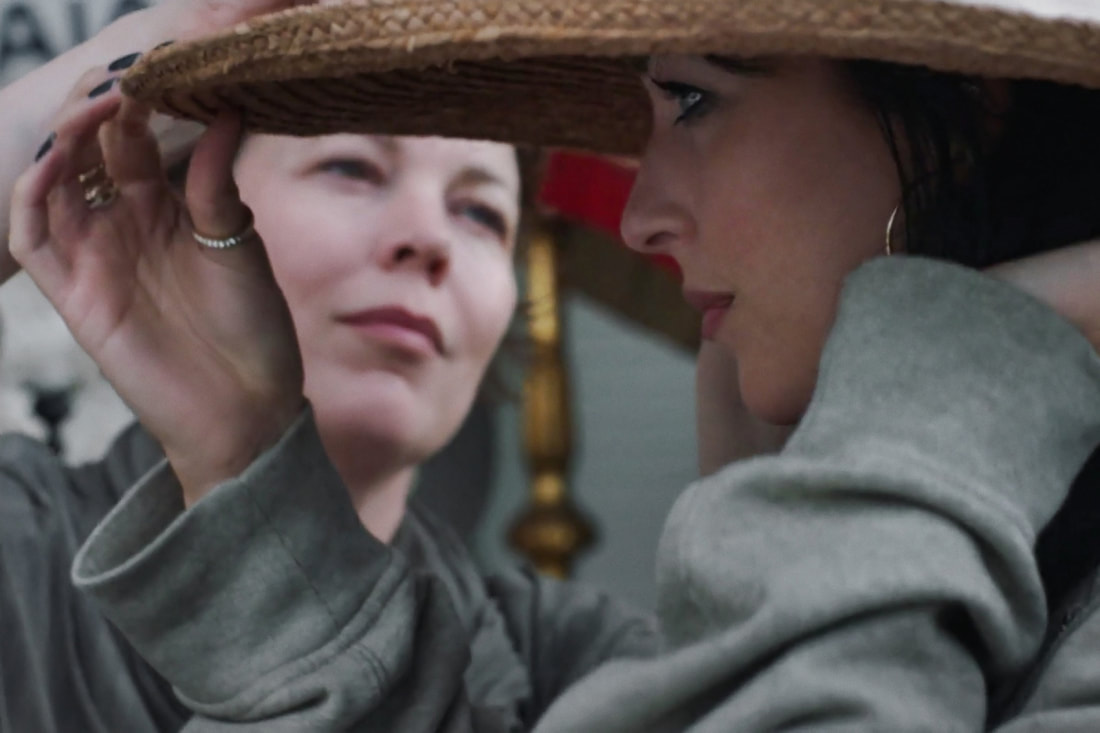
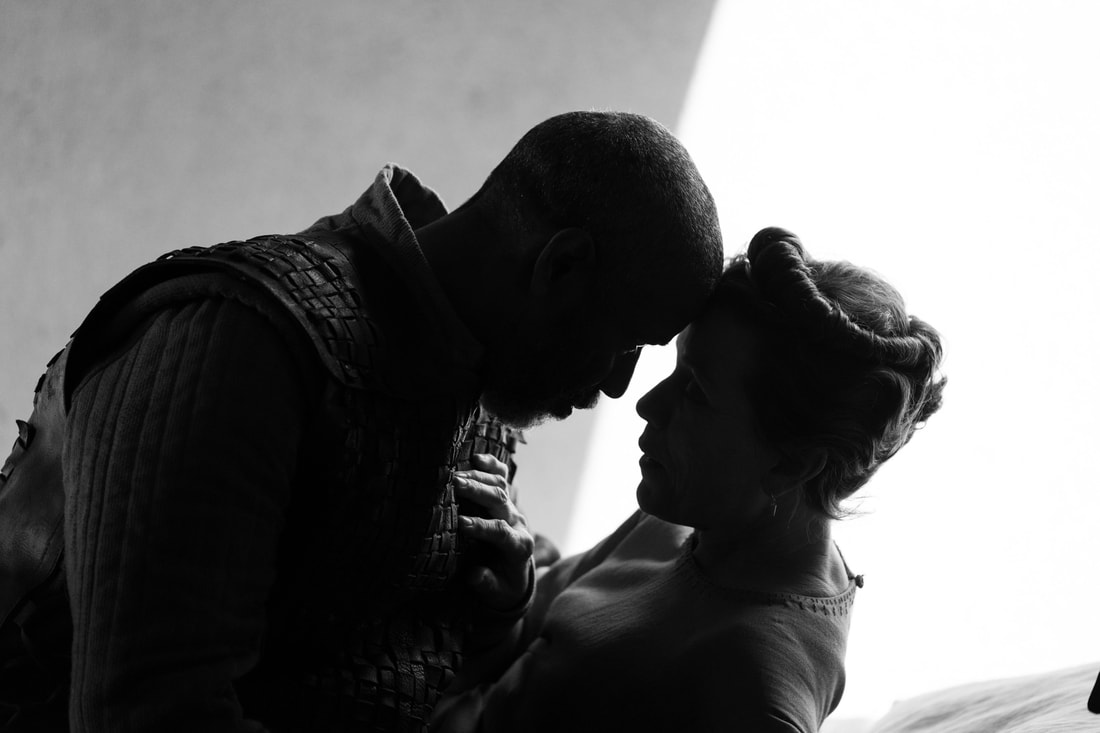
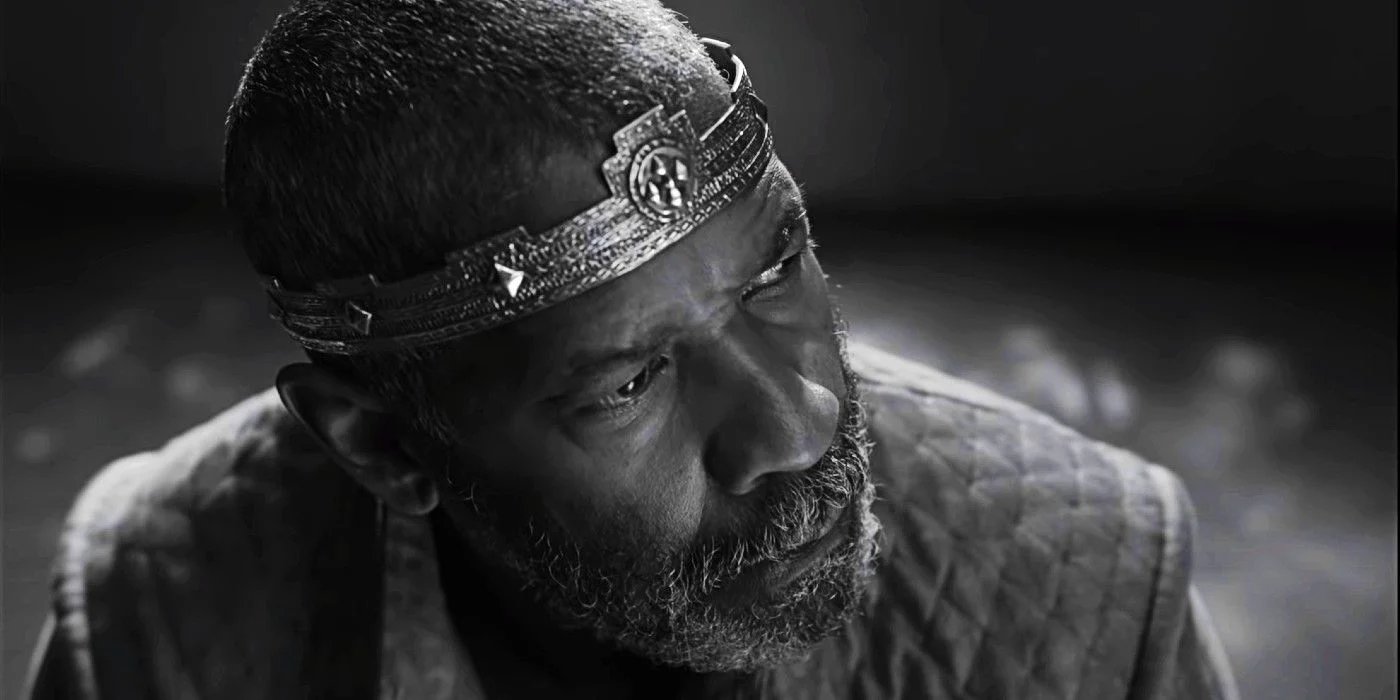
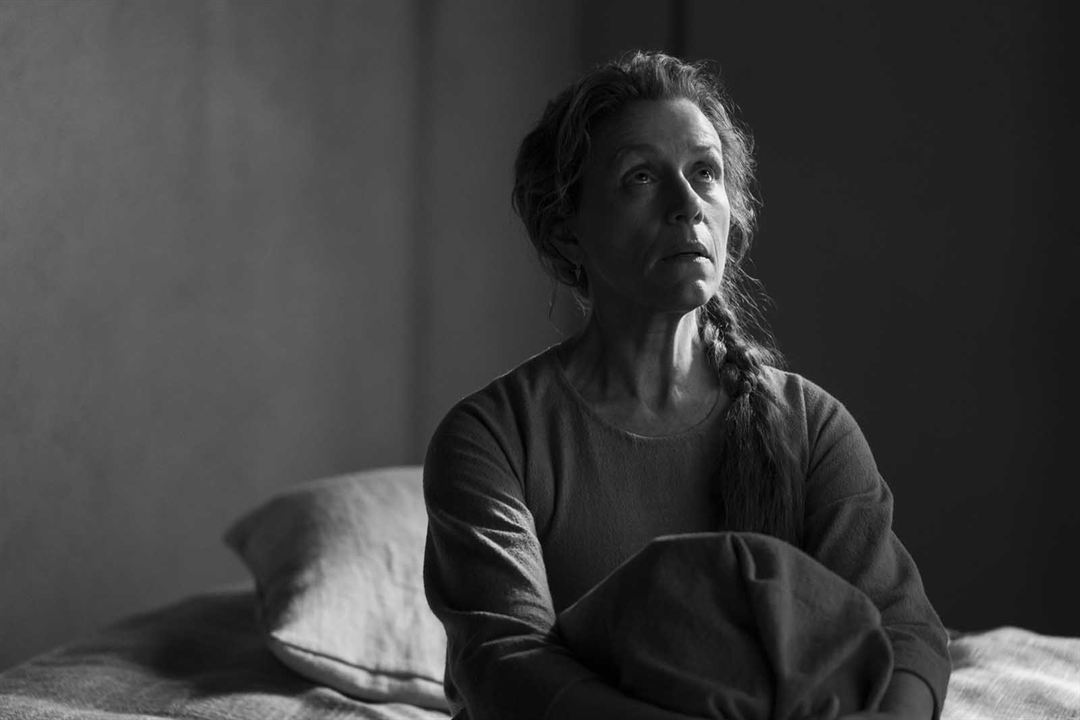
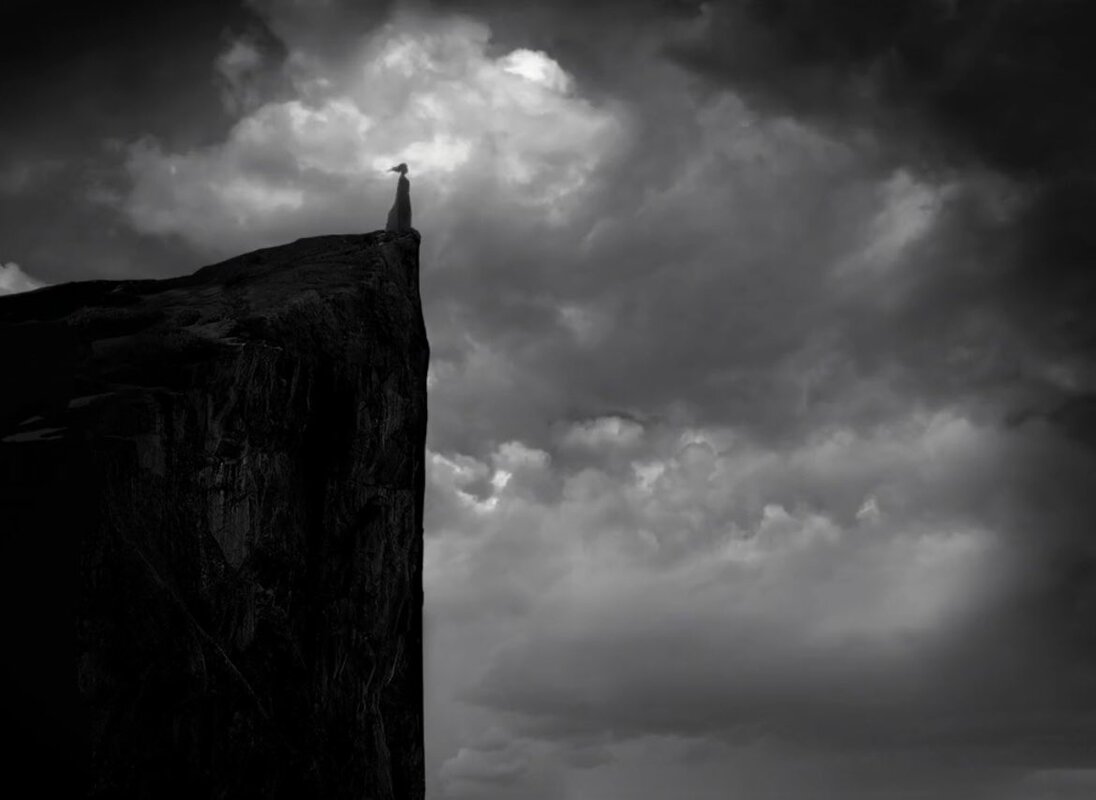
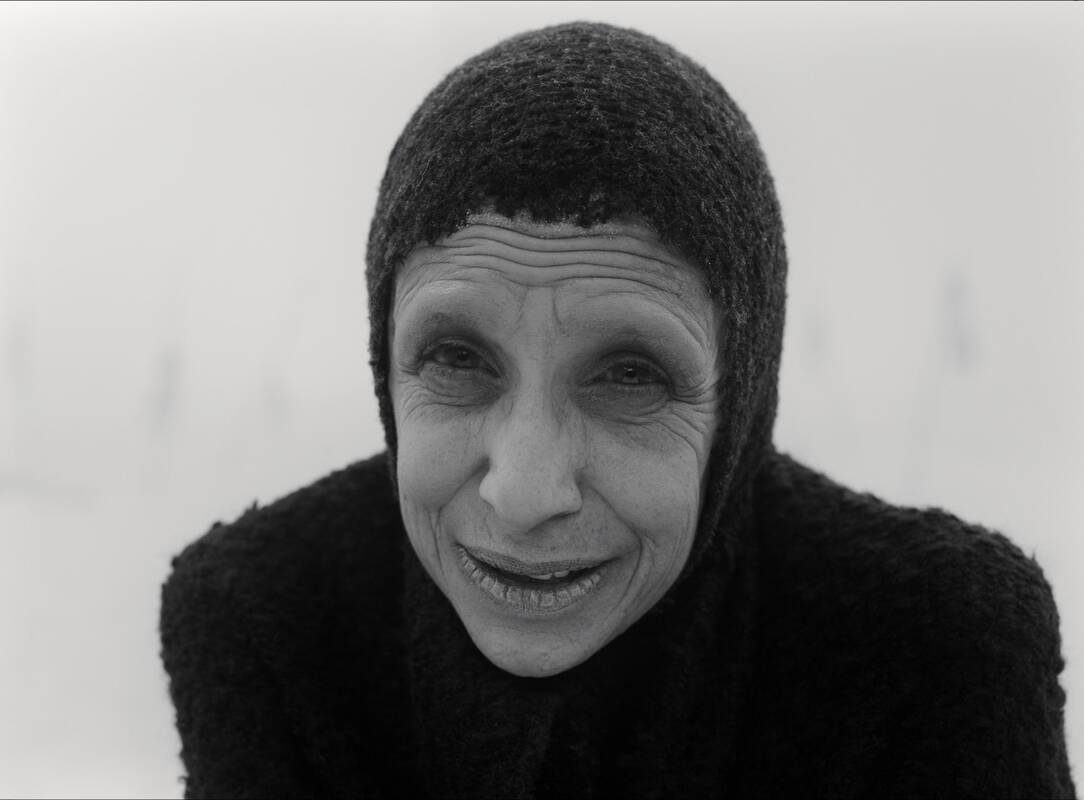
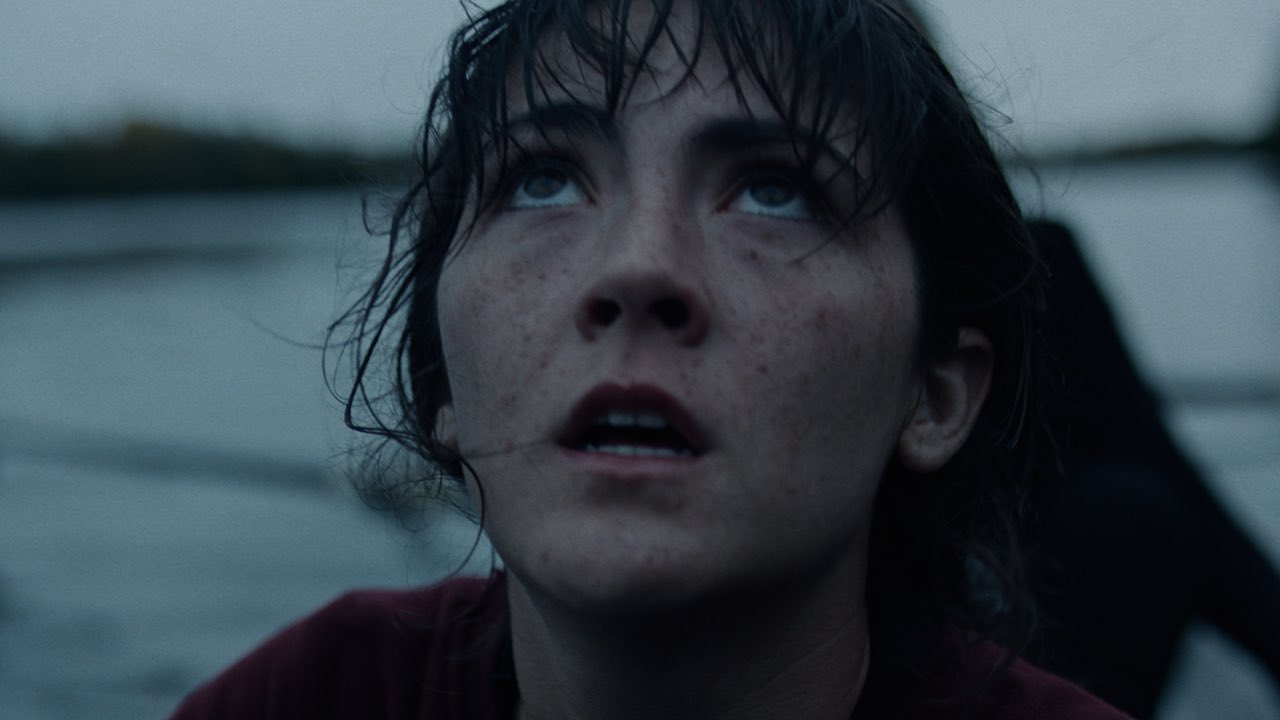
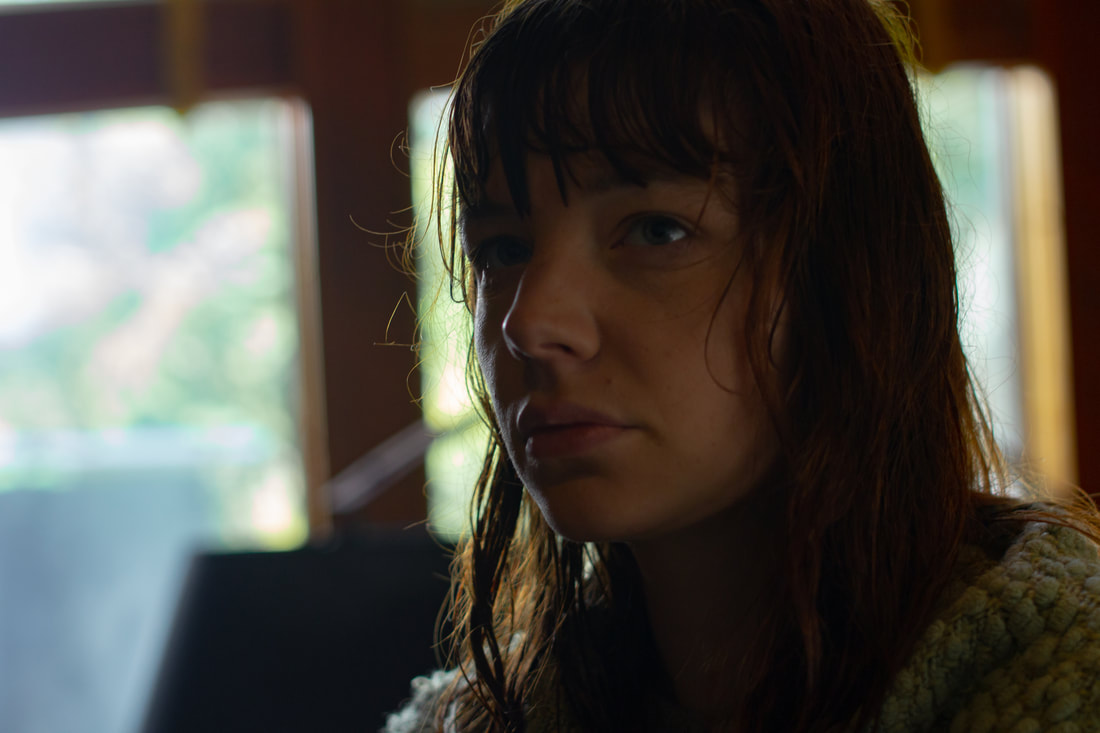
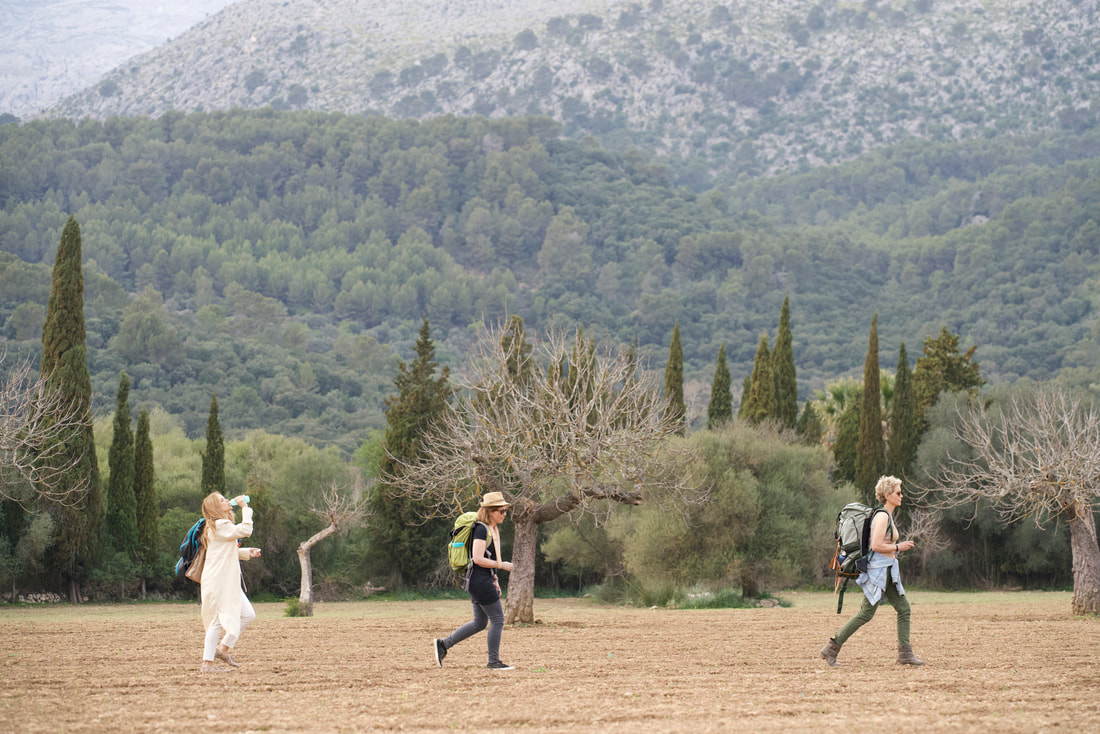
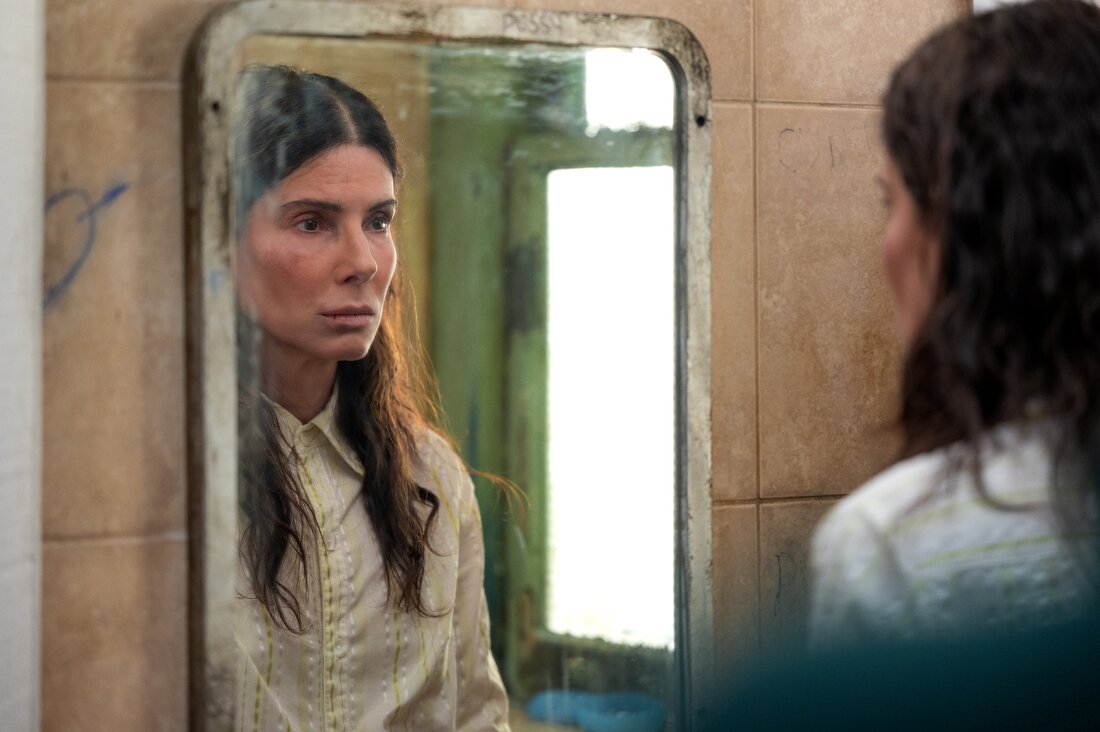
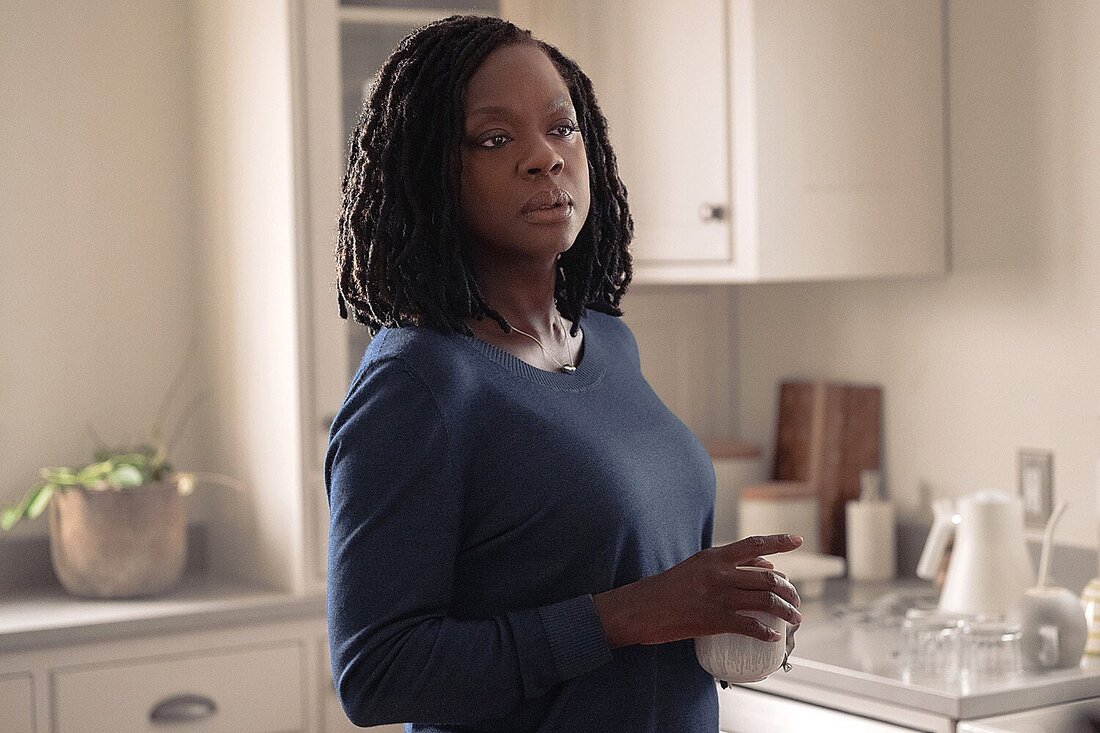
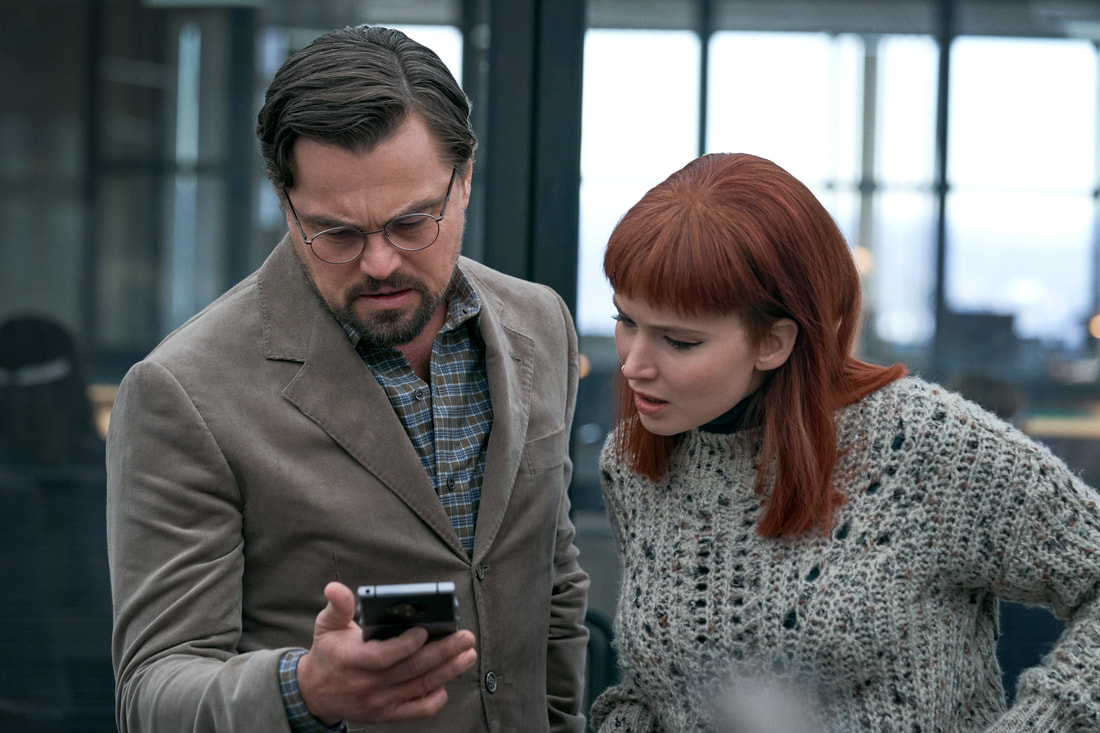
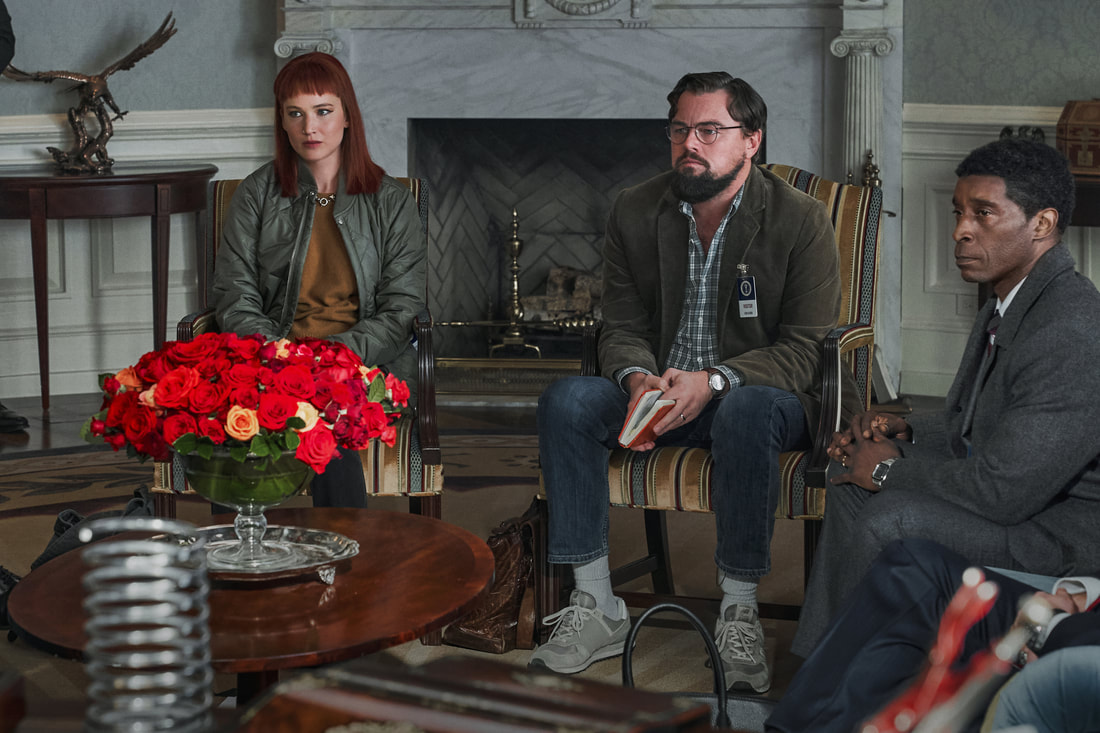
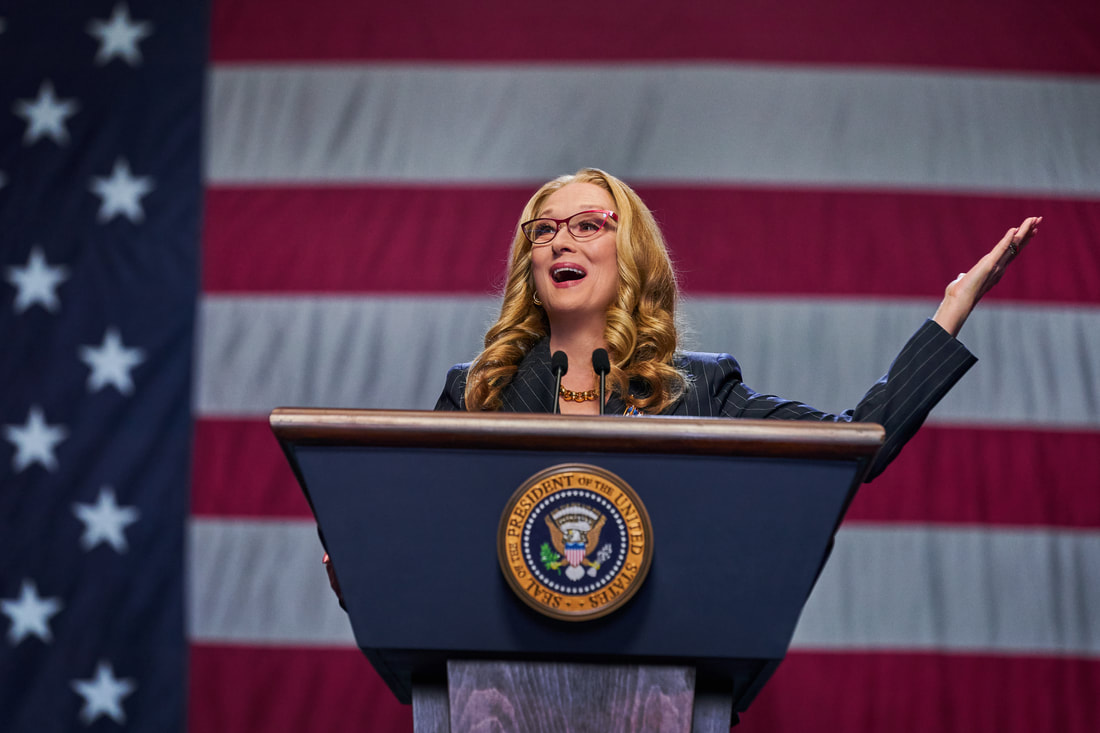

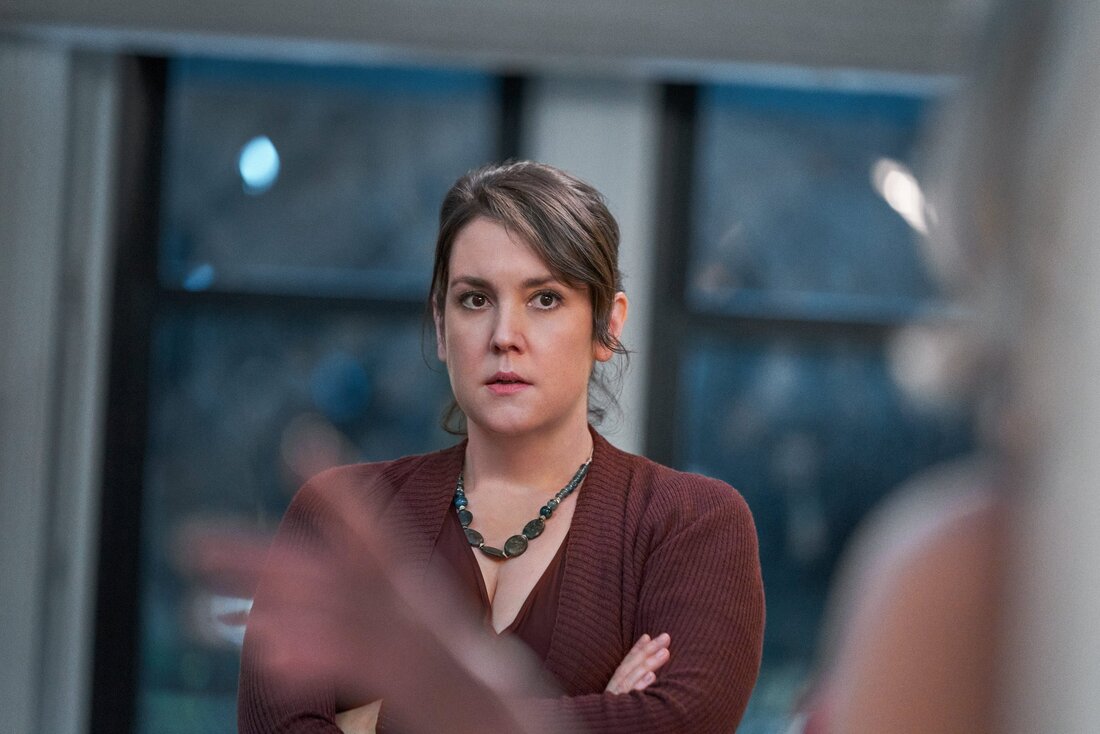
 RSS Feed
RSS Feed